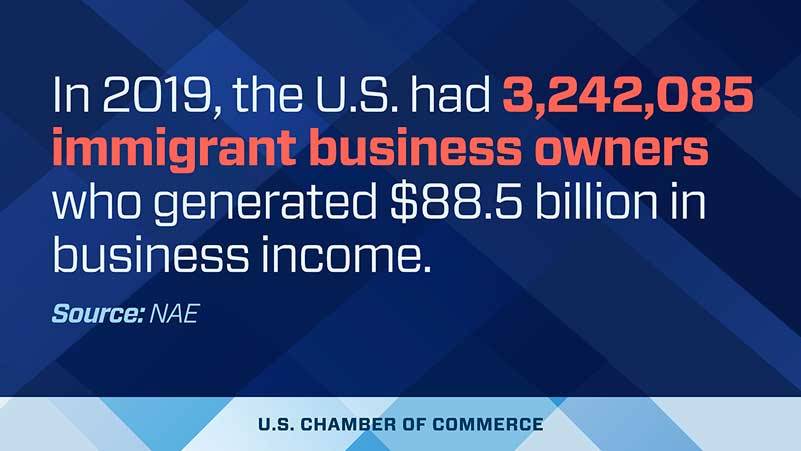By Morf Morford
Tacoma Daily Index
If there were any issue that you would think would unite us as a nation, since literally 99% of us are or are descendants of immigrants, that issue would be immigration policy.
But in spite of personal history, a couple centuries of unparalleled progress and prosperity and unmatched achievements across Nobel Prizes, Olympics awards and technological breakthroughs, we still argue about what is clearly our biggest and most reliable strength.
This is not an opinion.
This was, in fact the focus of a recent session put on by the U.S. Chamber of Commerce. You can see the entire session here: https://www.uschamber.com/on-demand/immigration/how-immigration-reform-will-drive-economic-growth?autoplay=1&utm_medium=Email&utm_source=SFMC&utm_campaign=&utm_content=.
The name of the session was Putting Communities First: How Immigration Reform Will Drive Economic Growth.
As our economy recovers from COVID related repercussions, we need workers – lots of them. In every area.
From pilots to doctors to teachers to restaurant workers, we need workers from every conceivable skill level and vocational field.
If your personal experience hasn’t shown you, here are a few statistics that will show all too clearly what the issues are, how high the stakes are and what the solution is.
Seasonal workers
The U.S. can’t meet demand for seasonal workers. In the first half of FY 2021, the Labor Department certified that American employers had 126,943 seasonal employment opportunities they could not fill with American workers.
This affects landscapers, seafood processors, forestry companies, construction firms, among many others, many of which are small businesses.
This also impacts the cost and availability of fresh produce for all of us.
Small businesses
A poll by the U.S. Chamber of Commerce and MetLife found that less than half of small business owners can find the workers they need. (https://www.uschamber.com/series/above-the-fold/less-half-of-small-business-owners-can-find-workers-new-poll-shows)
The majority of small business owners (55%) think the U.S. small business climate will return to normal in six months to a year. Only 27% think the climate will return to normal in under six months.
I see “Help wanted” signs almost everywhere I go.
Many small business owners report that they would put people to work the day they apply.
Most businesses offer better pay and benefits and even sign-up bonuses and more flexible schedules
This was unheard of just a few months ago.
Tourism?
In tourism and travel dependent industries and regions, the problem is far worse.
Hospitality businesses like restaurants, hotels, and resorts are cutting back or closing altogether.
Fewer hours means less revenue and a poorer customer experience, which hurts the reputation of a tourist-dependent region. Service and wait times at restaurants and for hotel rooms to be cleaned are expanding – and frustrating for employers and customers alike. There’s even a huge shortage of Uber and Lyft drivers.
Students
You might think of students as going to school. They do, of course, but they do much more than that.
They work, learn about American culture and develop networks – and many of them start businesses.
Our economy needs those seasonal and part-time workers, and we need those students with their entrepreneurial energy and networks to stay here and set up their businesses within our borders.
These students, with their assets and energy, are our future.
Anyone remember the term “brain drain”?
That was the term used to describe the literal migration to the USA of almost every nation’s best and brightest young people as they sought opportunities unavailable at home – but abundant here.
Somehow in recent years, “brain drain” of another sort seems to have developed among American politicians as many sought to cancel or cut foreign student programs and even expelled or deported recent graduates forcing them to build their companies outside of our borders instead of inside them.
These are not the entrepreneurs, professionals, medical and technological innovators who are going to TAKE our jobs, they are the entrepreneurs, professionals, medical and technological innovators who are going to CREATE our jobs.
Inherent bias
Some might argue that the U.S. Chamber of Commerce is biased.
Or that I am.
Yes, that is certainly true. I and the U.S. Chamber of Commerce are heavily biased in terms of increased opportunity, prosperity and stability of our society and economy.
What we believe is that what WILL make our economy strong is what has always made it strong; encouraging, even welcoming, those whose vision and energy can find a home here – even if it might not anywhere else.
Unlike those politicians who seem to have failed Econ 101, I want the “brain drain” to work for us and not against us.
If you want to see more on how immigration impacts local communities and economies, look here: https://www.uschamber.com/series/above-the-fold/why-immigration-reform-matters-local-communities-0?.





